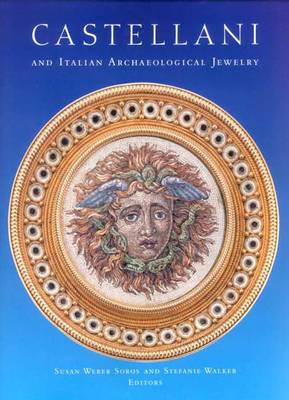Bard Graduate Center for Studies in the Decorative Arts, Design & Culture
1 total work
Castellani and Italian Archaeological Jewelry
Published 10 November 2004
During the nineteenth century in Rome, three generations of the Castellani family created what they called "Italian archaeological jewelry", which was inspired by the precious Etruscan, Roman, Greek, and Byzantine antiquities being excavated at the time. The Castellani jewelry consisted of finely wrought gold that was often combined with delicate and colourful mosaics, carved gemstones, or enamel. This magnificent book displays and discusses the jewelry and the family behind it. International scholars discuss the life and work of the Castellani, revealing the wide-ranging aspects of the family's artistic and cultural activities. They describe the making and marketing of the jewelry, the survey collection of all periods of Italian jewelry on display in the palatial family store, and their activities in the trade of antiquities, as they sponsored excavations, and restored, dealt, and exhibited antiques. They also recount the family's involvement in the cultural and political life of their city and country.
This richly illustrated book is the catalogue for an exhibition opening in November 2004 at the Bard Graduate Center for Studies in the Decorative Arts, Design, and Culture, before traveling to Rome and London.
This richly illustrated book is the catalogue for an exhibition opening in November 2004 at the Bard Graduate Center for Studies in the Decorative Arts, Design, and Culture, before traveling to Rome and London.
